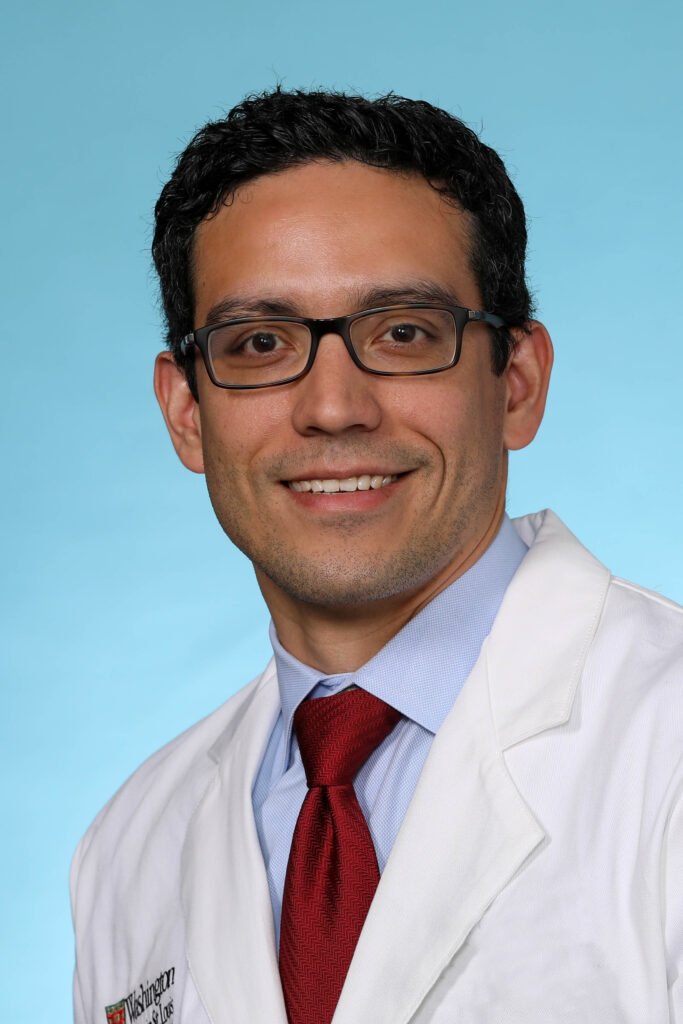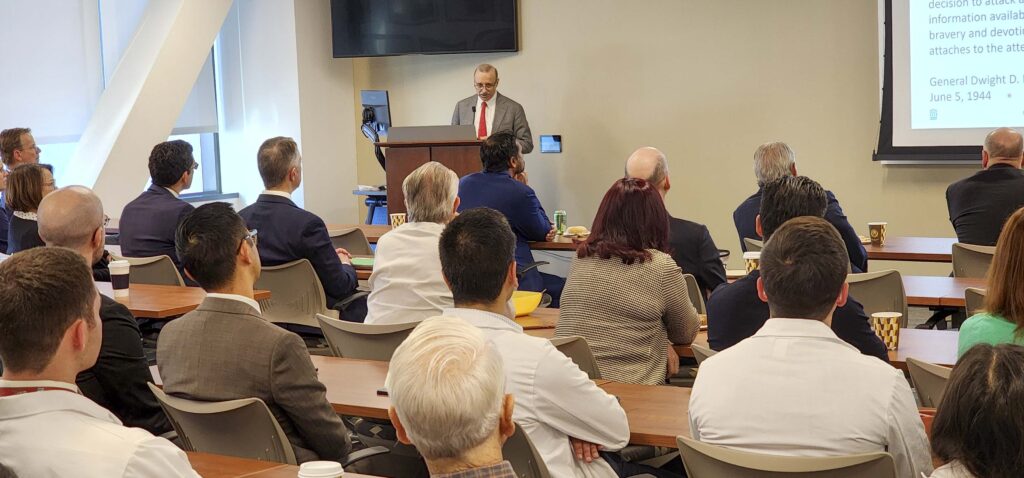A multidisciplinary group of researchers at Washington University shared cutting edge advancements in our understanding of head and neck cancer. The event marked the third research symposium, held as part of the annual Spector Lectureship in the Biology of Cancer.
For program organizer and Assistant Professor of Otolaryngology Alex Harbison, MD, the event highlighted what he acknowledged is a very exciting time for head and neck cancer research at WashU.

“The work we saw at the research symposium was a small glimpse into the pioneering efforts that will bring new hope to our patients,” he said. “The talks were a brilliant display of creative, innovative, and high-impact work across disciplines in head and neck oncology bringing together clinicians and scientists across the spectrum of basic, translational, and clinical research.”
He further explained that, “the common thread across all of the talks was that our patients are at the center of our work, pushing us to advance head and neck cancer science by leaps rather than small increments.”
Fifteen talks, offered by trainees and faculty, highlighted efforts to understand the cellular and molecular mechanisms of cancer development and metastasis; improve individualized treatment and treatment de-escalation; treat comorbid conditions related to treatment; and the use of artificial intelligence to enhance cancer diagnosis and treatment.
The full list of presentations follows.
Targeting NRF2 in head and neck squamous cell carcinoma
Paul Zolkind, MD
Therapeutic Opportunities for the KEAP1/NRF2 Pathway in Cancer
Ben Major, PhD
Spatial Transcriptomic Analysis of HNSCC Tumor Heterogeneity
Tom Barrett, MD
Long-Term Efficacy of Risk-Directed, De-Escalated Post-Operative Adjuvant Therapy for Locally Advanced, HPV-Positive Oropharynx Squamous-Cell Carcinoma (HPV+ OPSCC): A Non-Randomized, Multi-Arm Phase 2 Trial
Wade Thorstad, MD
The utility of intraoperative frozen section to assess final tumor margin status in patients undergoing transoral surgical resection for HPV+ oropharyngeal squamous cell carcinoma
Salma Ramadan
Taste Function in Oropharyngeal Cancer Treatment: A Prospective Cohort Study
Theresa Tharakan, MD, MSCI
Impact of Time to Surgery in Aggressive Histology Papillary Thyroid Cancer
Katherine Chang, MD
Blocking DNA damage signaling in T cells prevents T cell senescence and enhances tumor immunity
Xia Liu, MD, PhD
APOBEC-dominant mutational signatures define a clinically distinct OCSCC subgroup
Ben Wahle, MD
Polyamines: restoring anti-tumor immunity in head and neck cancer
Alex Harbison, MD
A novel transcriptional program confers resistance to immunotherapy in head and neck cancer
Reilly Sample
Generative AI in H/N Genomics
Michael Waters, MD, PhD
Immune Correlates from a Phase 2 Neoadjuvant Trial of HPV-specific T-cell Activator CUE101 in Oropharynx Squamous Cell Carcinoma
Jesse Zaretsky, MD, PhD
CD163-Targeted PET Imaging of Tumor-Associated Macrophages in Head and Neck Cancers
Gyu Seong, PhD
Postoperative cervical lymph fluid: A novel liquid biopsy for HNSCC
Noah Earland
